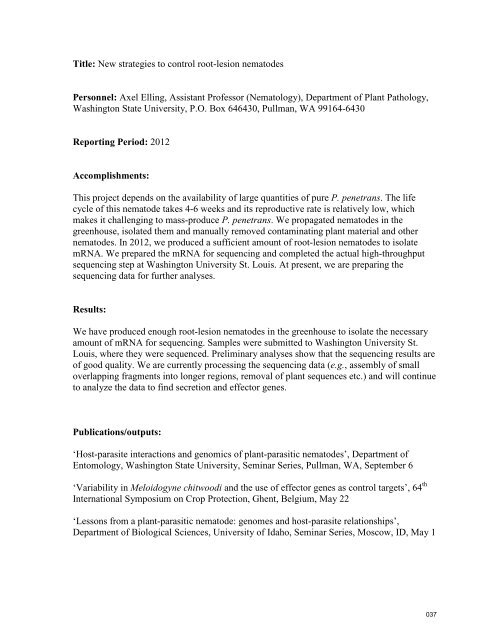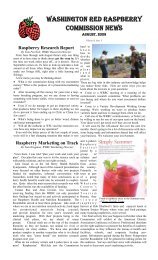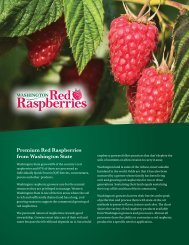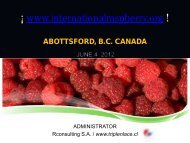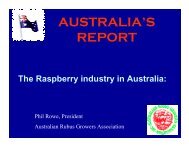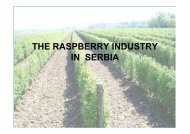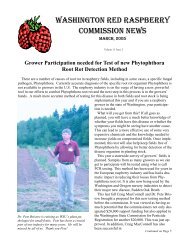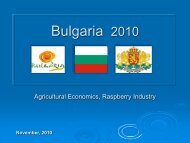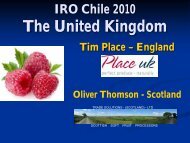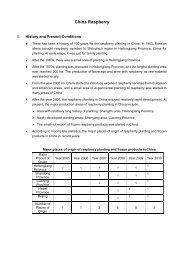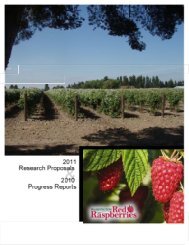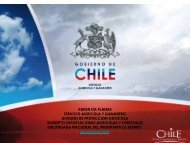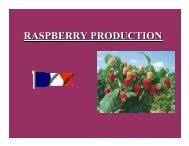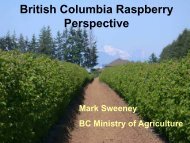2012 - Washington Red Raspberry Commission
2012 - Washington Red Raspberry Commission
2012 - Washington Red Raspberry Commission
You also want an ePaper? Increase the reach of your titles
YUMPU automatically turns print PDFs into web optimized ePapers that Google loves.
Title: New strategies to control root-lesion nematodes<br />
Personnel: Axel Elling, Assistant Professor (Nematology), Department of Plant Pathology,<br />
<strong>Washington</strong> State University, P.O. Box 646430, Pullman, WA 99164-6430<br />
Reporting Period: <strong>2012</strong><br />
Accomplishments:<br />
This project depends on the availability of large quantities of pure P. penetrans. The life<br />
cycle of this nematode takes 4-6 weeks and its reproductive rate is relatively low, which<br />
makes it challenging to mass-produce P. penetrans. We propagated nematodes in the<br />
greenhouse, isolated them and manually removed contaminating plant material and other<br />
nematodes. In <strong>2012</strong>, we produced a sufficient amount of root-lesion nematodes to isolate<br />
mRNA. We prepared the mRNA for sequencing and completed the actual high-throughput<br />
sequencing step at <strong>Washington</strong> University St. Louis. At present, we are preparing the<br />
sequencing data for further analyses.<br />
Results:<br />
We have produced enough root-lesion nematodes in the greenhouse to isolate the necessary<br />
amount of mRNA for sequencing. Samples were submitted to <strong>Washington</strong> University St.<br />
Louis, where they were sequenced. Preliminary analyses show that the sequencing results are<br />
of good quality. We are currently processing the sequencing data (e.g., assembly of small<br />
overlapping fragments into longer regions, removal of plant sequences etc.) and will continue<br />
to analyze the data to find secretion and effector genes.<br />
Publications/outputs:<br />
‘Host-parasite interactions and genomics of plant-parasitic nematodes’, Department of<br />
Entomology, <strong>Washington</strong> State University, Seminar Series, Pullman, WA, September 6<br />
‘Variability in Meloidogyne chitwoodi and the use of effector genes as control targets’, 64 th<br />
International Symposium on Crop Protection, Ghent, Belgium, May 22<br />
‘Lessons from a plant-parasitic nematode: genomes and host-parasite relationships’,<br />
Department of Biological Sciences, University of Idaho, Seminar Series, Moscow, ID, May 1<br />
037


